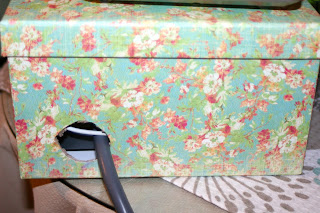Tonight, the elementary school where I teach had a Christmas caroling event that I was planning to attend. It would have been the first time for me to carol since I lost my hearing suddenly three years ago.
I didn’t go. Seriously, I could come up with a million
reasons why I didn’t go, but the only excuse I have is that I chickened out.
I’m afraid of music. It’s true. It terrifies me. If this had
been a dinner or a play or a discussion of the complexities of the Pythagorean
theorem, it would have been much easier. But it was music and
singing. And that is much, much scarier.
 |
| Oh no! It's MUSIC! |
I’m considered a high-functioning cochlear implant
recipient. I hear and comprehend speech and conversation very well in most
settings. But music eludes me. It’s my bête noire – the beast I have yet to
conquer. I have focused on music rehabilitation for the last year, attempting
to make my cochlear implant work for
hearing music. I haven’t been able to find a way past the distorted static of
noise to find a melody or harmony or instrumentals -- or much of anything
musical at all. I complain to my audiologist and she patiently adjusts my
programming in ways I cannot comprehend – little tweaks that might help. But she tells me that many
of her patients complain that music is elusive to them as well.
We’re limited by the technology. And by our hearing loss.
When a person loses their hearing, many other things are
lost along the way. It’s difficult to describe the impact that hearing loss has
on our lives to those who’ve never experienced it. One of the things I was
warned to watch for is the withdrawal from things I once enjoyed. That didn’t
happen for me as suddenly as I lost my hearing, but I slowly became aware that
I turned down invitations to events I once participated in gladly, preferring instead
the quiet and solitude of activities I could do without the necessity of a
working ear.
There was a day when I would have loved caroling with
friends and colleagues. But not today.
So I sit here on my living room sofa trying to rationalize
my guilt away. I know I succumbed to my fear of music and pitchy melodies and
harmonies too far out of my decibel range to hear. And I stayed home. My
self-speak chastises me with “should haves” and “could haves.” I should have
shrugged off my fears and insecurities and gone caroling anyway. I could have
tried. I should have endured. I could have taken my cochlear implant off, shutting
off the “noise” of the songs, and smiled my way through the silence. But I didn’t. I'm a coward.
Music is a very, very, scary thing.












